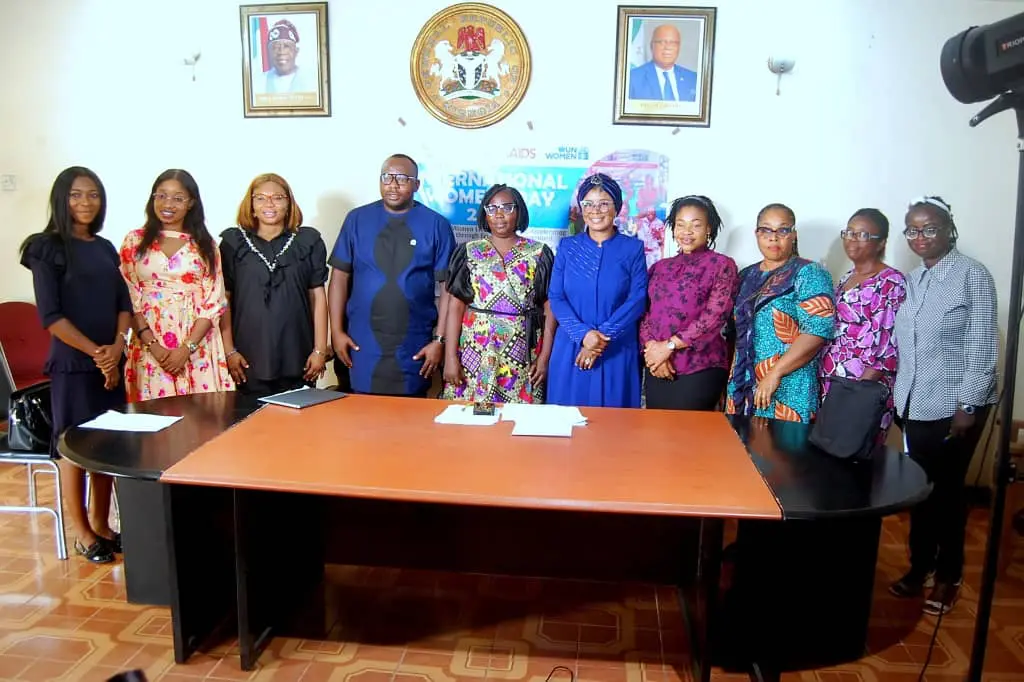The Association of Women Living with HIV and AIDS (ASWHAN), Akwa Ibom State chapter, has called for their inclusion in the implementation of Prevention of Mother-to-Child Transmission of HIV (PMTCT) and other economic programs in the state.
The Akwa Ibom State Coordinator of ASWHAN, Rachael Ignatius, made the appeal on Friday during a press conference at the State Agency for the Control of AIDS office in Uyo. She explained that their inclusion would position them as the lead Civil Society Organization (CSO) for PMTCT in Nigeria, aiming to end mother-to-child transmission of HIV so that no child would be born with HIV any longer.
The coordinator noted that the press conference followed the International Women’s Day celebration with the theme “Invest in women, accelerate progress.” She emphasized that the theme resonates with the need to empower women, especially those living with HIV, with life-building skills to reduce their vulnerability.
She appealed to all partners to recognize their role in the fight against the escalation of HIV and called for their inclusion in the Grant Cycle 7 PMTCT implementations.
She stated, “We encourage national and international partners to demonstrate their commitment to providing platforms for women and girls living with HIV to have access to economic resources, enjoy their rights, and have a decent livelihood.
“Federal and state ministries of health should engage ASWHAN in PMTCT program implementation and service delivery, thereby positioning ASWHAN as the lead CSO for PMTCT in Nigeria to end mother-to-child transmission of HIV. No child henceforth should be born with HIV.”
The group also urged the state government to consider the HIV anti-stigma and discrimination bill, which had not been assented to in the last administration. They affirmed that having the law in place will protect the rights of women with HIV as well as those who are not infected with the virus.
Speaking, Akwa Ibom State Coordinator of the Joint United Nations Programme on HIV/AIDS – UNAIDS, Dr Idayat Uthman, noted, “We will continue to support the state in ensuring that the anti-stigma law is enacted. We will not stop. We started the fight and we will see it through.”
In his address, the Program Manager of AKSACA, Dr Enbong Akpan, expressed concern about poverty affecting women living with HIV. He called for private and public collaboration to advance the empowerment of women infected with the virus, suggesting soft loans for business and skills acquisition. He insisted that this approach would significantly increase their economic status and help in ending poverty.
He also advocated for gender-responsive financing, emphasizing that providing funds for women is crucial to end violence against them.
“We join ASWHAN in advocating for funding for women to end violence against them. There is a global annual deficit in the budget for women, especially in the area of violence against them,” he stated








